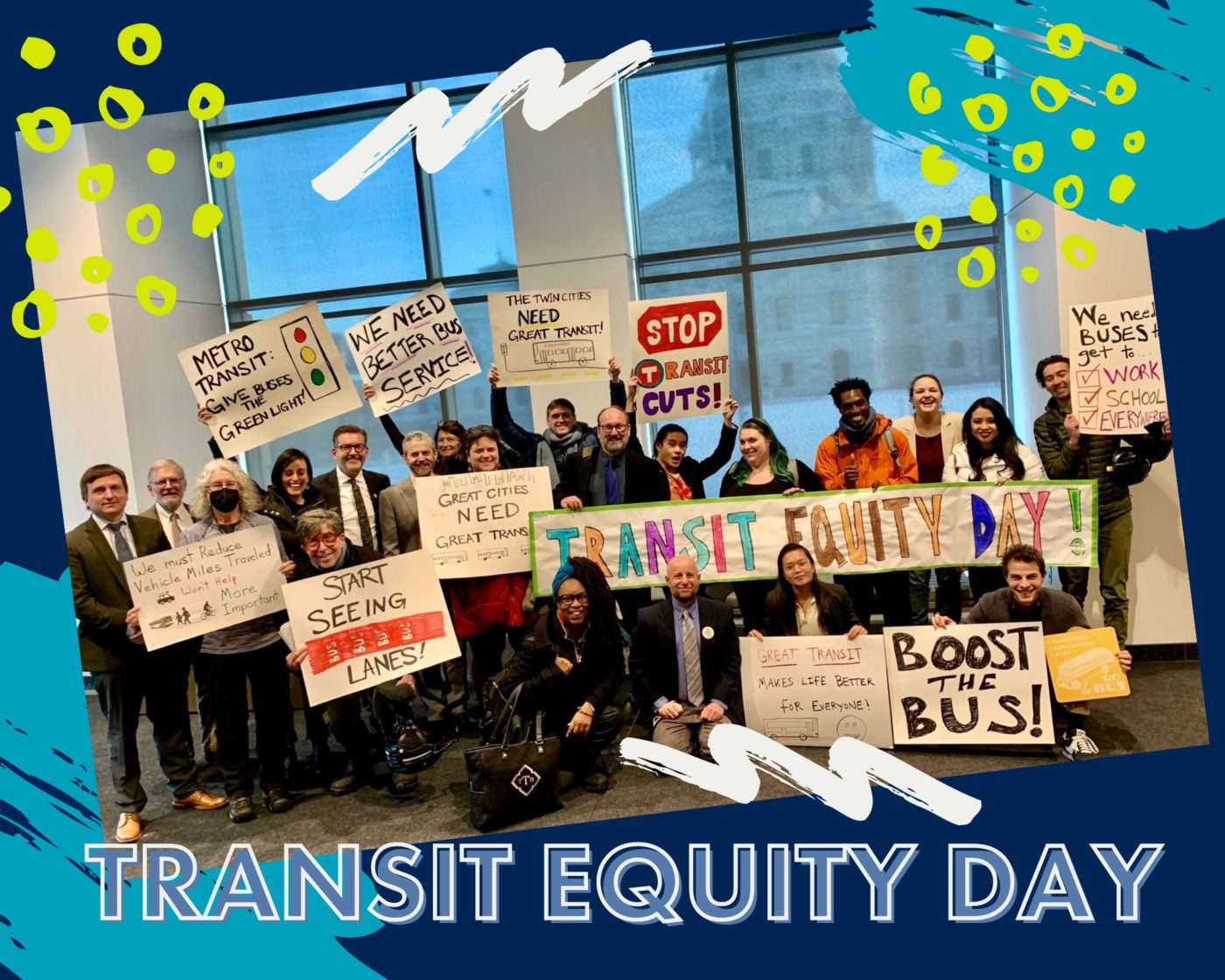Building on the Legacy of the Civil Rights Struggle, Advocates & Riders Testify on Transit Equity Day
On December 1, 1955, Rosa Parks refused to give up her seat on a bus in Montgomery, Alabama, marking an individually courageous but collectively orchestrated milestone in the civil rights movement. Part of the NAACP for more than a decade, Parks knew the central importance of access to and dignity on public transportation in achieving equality and justice for Black communities.
Created in 2018 by labor and climate advocates, Transit Equity Day is an annual celebration of Rosa Parks’ birthday and a call to carry on her fight for a public transportation system that works for everyone.
Here in Minnesota, we elevated this national day of action with hearings in both chambers of the state legislature, amplifying the voices of more than two dozen transit riders and advocates.
“The history of transportation in the Black community is one that has always divided or destroyed the economic viability of the community,” Shanasha Whitson, Executive Director of Community Partnership Collaborative, testified in the House Transportation Committee. “There are dozens of examples — most notably, in St. Paul where Interstate 94 ran through the vibrant Rondo community. Since this is a Transit Equity Day-themed hearing, equity to me means fairness and justice. With transportation, that means expanding public transit without repeating the same harms. In future planning, it means involving people who use transit, especially those who have been harmed or left out.”
MJ Carpio, Move Minnesota campaign manager, emphasized the role of transportation in creating a Minnesota where everyone can thrive.
“If we’re asking people to be full, mobile, contributing participants in our societies, then we also need to provide the fair means to do so,” Carpio testified. “To do that we need access to bus lines that are close to people’s homes, and frequent and reliable service. We need to decriminalize people who rely on transit for warmth and give transit operators and support staff the incentives and tools to meet safety and accessibility needs for all passengers. And, at a broader scale, equity also means clean air, clean water, and a climate that will not perpetuate existing inequalities.”
On Transit Equity Day, lawmakers heard stories from transit users who ride the bus or train for a wide variety of reasons: economic need, concern for the climate, disability or health, connection to their community and so much more. Here at Move Minnesota, we center these stories — and the legacy of Rosa Parks — in our work, not just once a year, but every single day.
Over the coming weeks, we’ll share more stories from the folks who testified, and we invite YOU to join our movement for transit equity, too. During the 2023 state legislative session, we’re asking lawmakers to capitalize on this moment of political unity and abundant resources to fully invest in our public transit system, not just with one-time spending but dedicated, long-term funding.
Learn more about our legislative priorities — and sign up to be part of our new Legislative Action Team!

